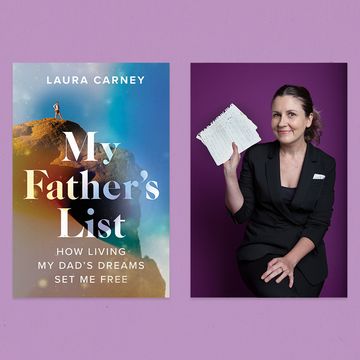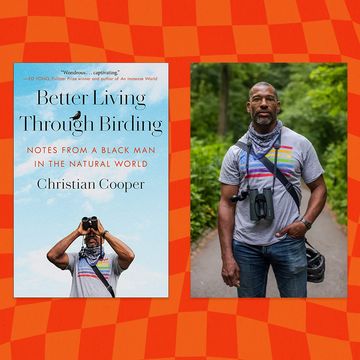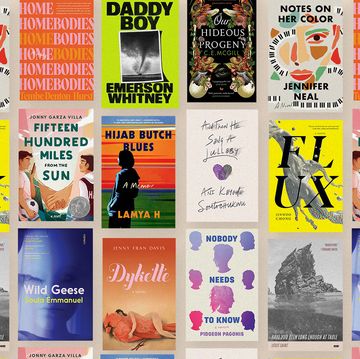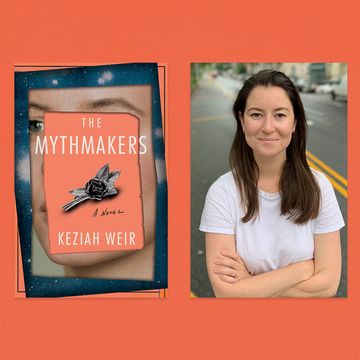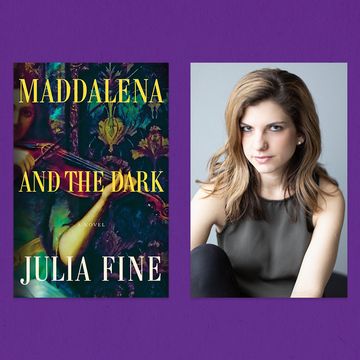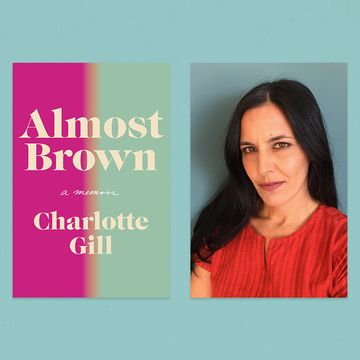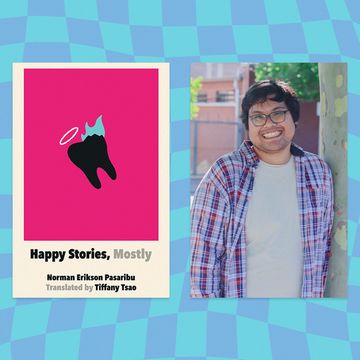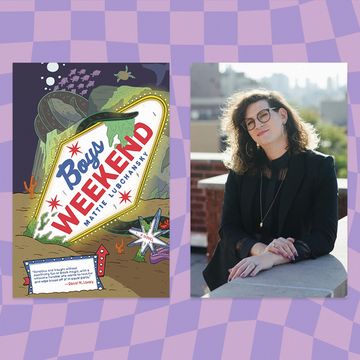Writing a book is no small feat, especially as a new author. The late nights, the revisions, the self-doubt — all for the glory of seeing your book in the hands of enthusiastic readers. With that in mind, each month Shondaland’s Authors to Watch series highlights an exciting debut writer whose work we want to recognize. Let’s welcome these new voices on the literary horizon together.
When Cecilia Rabess turned 30, she made a decision: She was either going to climb Mount Kilimanjaro or write a novel. As tempting as it was to scale the Tanzanian peak, she opted for the latter — and spent the next several years turning her lifelong dream of becoming a writer into a reality. Yet making the switch wasn’t exactly an easy feat; not only was Rabess still working as a data scientist at Google during the day, which made finding time to write difficult, but she also didn’t have a plot for her proposed book. Or a setting. Or characters.
As it turned out, “Writing the novel was basically my mountain to climb,” Rabess recalls, speaking to Shondaland from her San Francisco home.
It wasn’t until 2018, in the middle of Donald Trump’s tumultuous presidency, that the author finally figured out what her future book should be about. Like many people, Rabess had been thinking a lot about the United States’ charged political climate, particularly the emotional splits between those on the left and the right. And then she came across an article in New York magazine called “Donald Trump Is Destroying My Marriage,” which featured couples on opposite sides of the political spectrum discussing how they did — or didn’t — discuss politics with each other.
At first, Rabess was reluctant to even give it a read. “I was at a point where I was really frustrated by those kinds of narratives because I was like, ‘Ugh, agree to disagree?’ That’s not really satisfying; I don’t understand how you can continue to feel that way in this climate,” she says. “I kind of hated that the article existed.”
Too intrigued not to check it out, however, Rabess ended up reading the story. To her surprise, not only was it far more nuanced than she’d anticipated, but the stories of Democrats and Republicans struggling to make their relationships work got her thinking. “I was like, ‘Huh, that’s interesting. I have this love story, and I don’t really have any tension or setting or plot, so maybe this could be a way into the story,’” she says.
A few years later, Everything’s Fine — an incisive, bold novel about the complicated relationship between Jess, a Black liberal 20-something working in tech, and Josh, her white conservative colleague — was born. But while the book (out June 6) may pose the question of whether two political opposites in love can manage to sustain a relationship, Rabess wants to make clear that it doesn’t have an answer.
“It was just kind of me working through all of that myself and inviting the reader to work it out with me, but not, unfortunately, having the be-all and end-all,” she says. Even now, she adds, long after writing the novel, she still isn’t sure where she stands on the matter. “I struggle to reconcile whether or not I feel like people who sit on opposite sides of this very big divide can actually, truly put all that aside.”
Everything’s Fine takes place in New York City during the years leading up to the 2016 election, an era when many were terrified by the threat of Trumpism, while others — some naively — dismissed it as temporary. Jess falls somewhere in between; as a Black woman, she’s disturbed and scared by the rise of the alt-right but has never been comfortable speaking out and protesting injustice the way many of her peers do. Her conflicting feelings come to a head when she finds herself falling for Josh, her Goldman Sachs coworker, whose infuriating political views collide with his charm and attractiveness. As Jess and Josh’s relationship deepens, she’s forced to question whether she loves him enough to look past his beliefs — or if she should even try.
In writing the novel, Rabess was committed to portraying both of her main characters as complex, three-dimensional people — which meant looking past Josh’s “finance bro” exterior to find the real, flawed person underneath. “I wanted him to be someone who was not doing any extra work necessarily to be a better person, but I don’t think it makes him a bad person just because he’s exactly what you would expect if you put him in the box that he’s in,” the writer says. As for Jess, Rabess aimed to show the difficulties of “coming of age as a Black woman in predominantly white spaces,” and feeling torn between one’s desires and one’s moral compass.
It’s weighty terrain for any book, let alone a debut by a previously unknown author. Yet Rabess says that when writing Everything’s Fine, she chose to ignore any fears about how the public would respond to the novel. “Had I thought about it, I think maybe it would’ve intimidated me or changed my approach,” she explains. Instead, she adds, “It was blissful ignorance, writing in sort of a vacuum.”
After her draft was complete, though, the worries came in — hard. “Once I finished the novel and was trying to get an agent and a publisher, I did feel like, ‘Wow, I’ve waded into some pretty thorny territory,’” recalls Rabess. “Maybe people might feel triggered, and they won’t even want to pick up the book, much less react to whatever’s inside of it.”
So, Rabess tried an experiment by writing an entire new draft of the book in which the timeline was shifted 30-ish years into the past, during the Reagan era. The goal? To see if Jess and Josh’s story would feel more palatable in a less heated time period. Yet to the author’s surprise, changing the book’s setting made little difference to its central themes and events. “It was crazy to see all of the parallels, how much had not changed in years,” Rabess says. “Even Fauci was there, presiding over the AIDS crisis. It was shocking.”
The commonalities, she adds, “actually made me feel much more confident that I could tell this story, even though it is a bit complicated or triggering, because it’s the only story that we know. We’re still grappling with things we were grappling with 30 years ago.”
Once Rabess had determined the modern-day version of the book was the way to go, she submitted it to agents — and quickly faced a number of rejections. To the author, the responses were “devastating,” she says, and made her question the quality of her work. “I was like, ‘Oh, my God, what am I doing?’ Because I’d spent all my nights and weekends on this thing. And I was also telling people about it, like, ‘Yeah, I’m writing a novel; it’s going to be great,’” she remembers. “So, that was quite humbling, and it felt terrible.”
But after each rejection, Rabess found it within herself to try again. As painful as all the no’s were to hear, she never considered giving up; her dream of publishing a novel was too powerful. “I knew I was going to do this one to the end,” she explains now. “If 10 agents rejected me, I was going to let 100 agents reject me, or 1,000. I wasn’t going to stop until there was nowhere left to go.”
With rave reviews and support from authors like Zakiya Dalila Harris and Nick Hornby, Everything’s Fine has become one of the summer’s most anticipated releases. Rabess is reveling in the excitement while also busily plotting away on her next novel, something “totally different” from her debut. She knows writing it won’t be easy, but then again, she’s already climbed one mountain and come out the other side. So, what’s to say she can’t do one more?
Rachel Simon is a writer with work in The New York Times, Glamour, NBC News, Marie Claire, and many other outlets. Follow her on Twitter @rachel_simon.
Get Shondaland directly in your inbox: SUBSCRIBE TODAY




